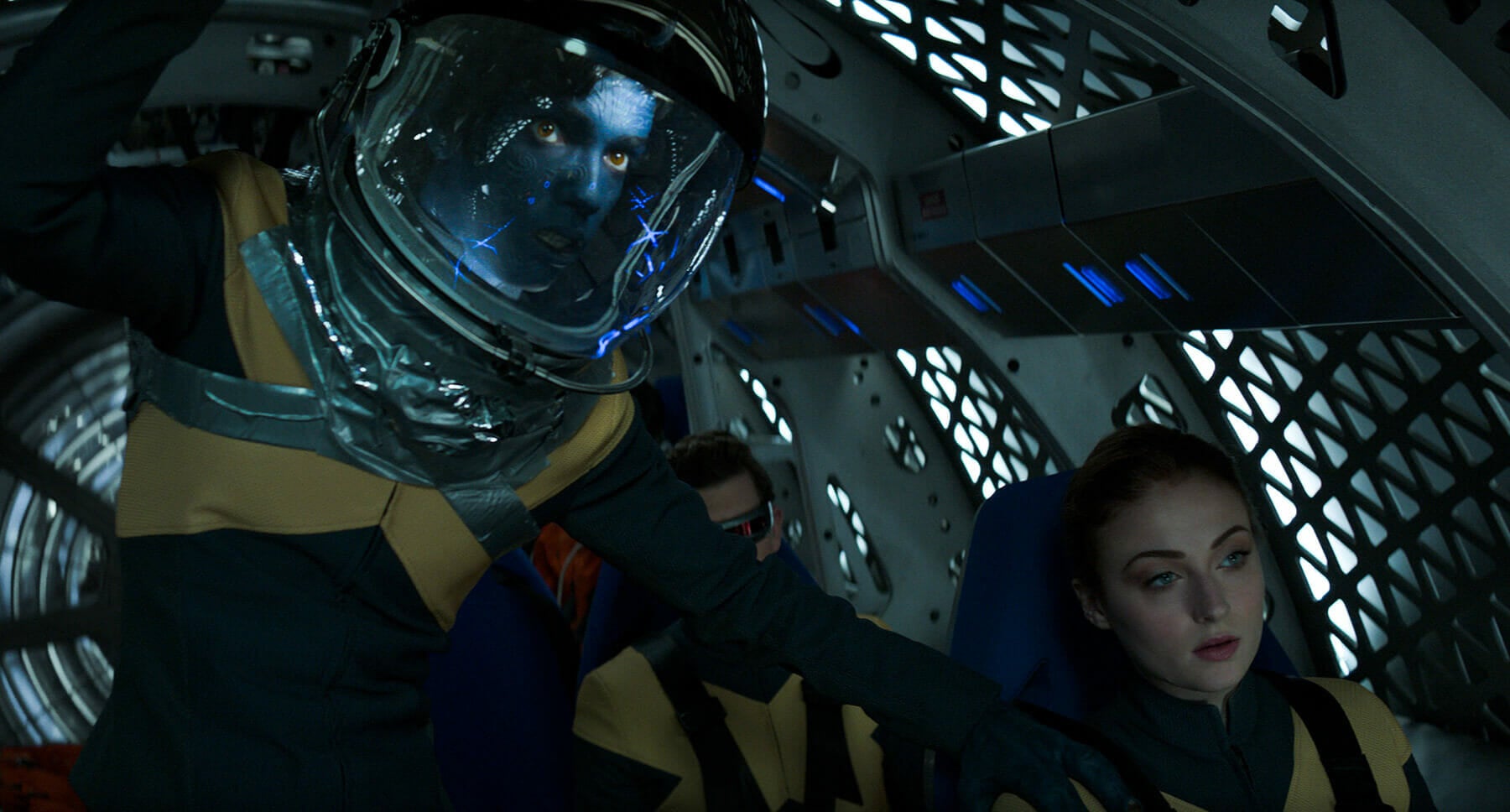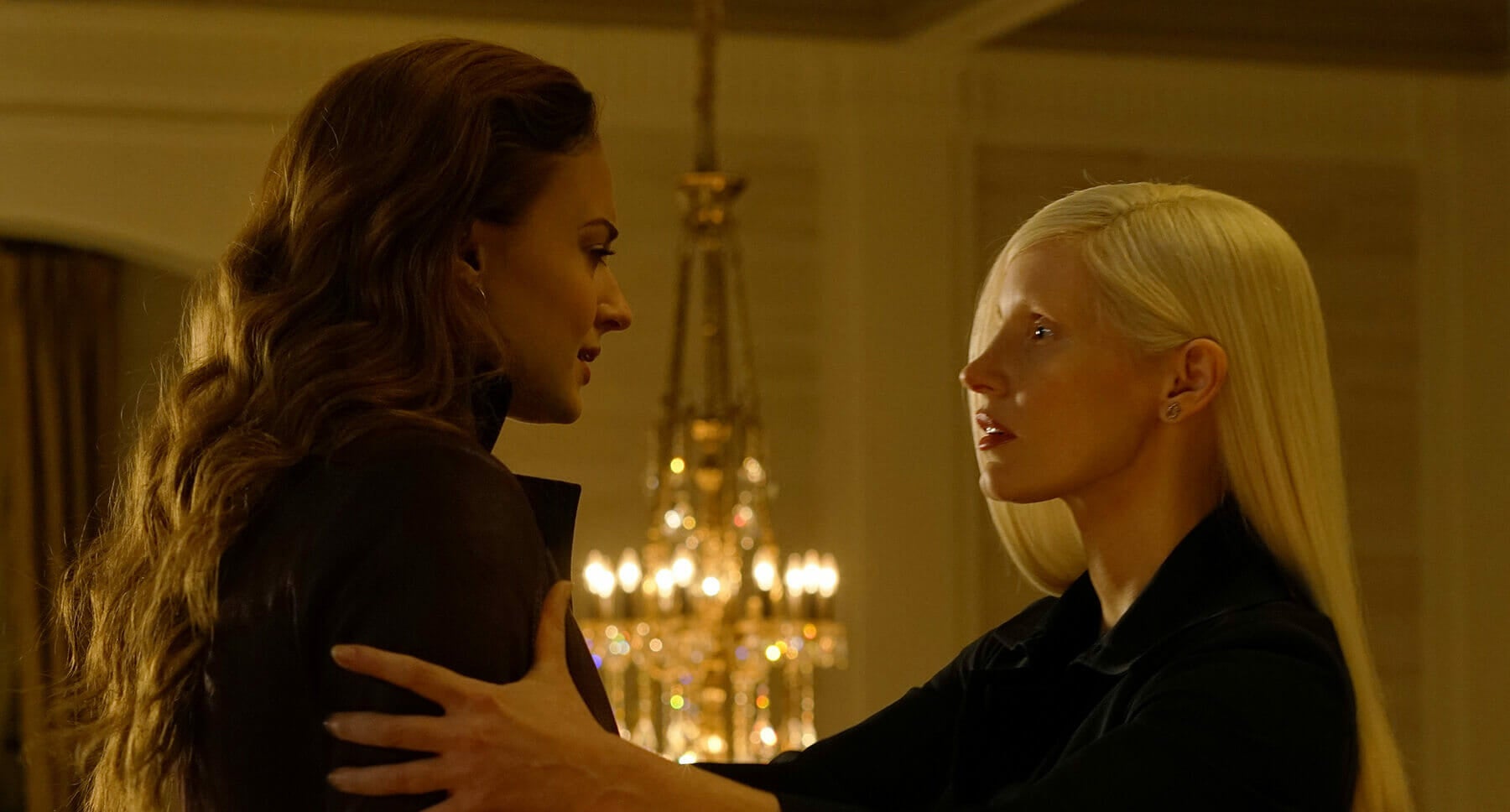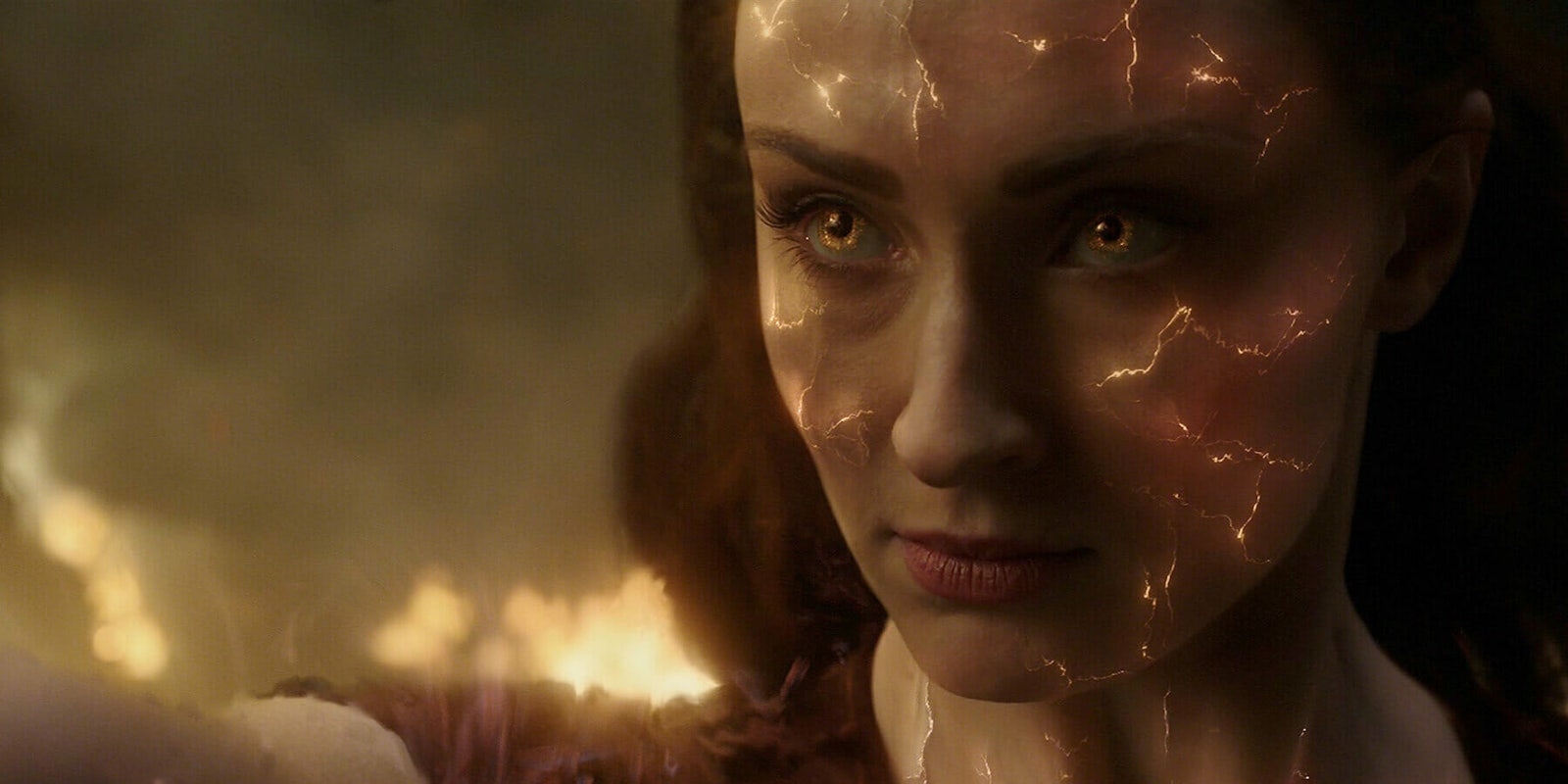X-Men: Dark Phoenix arrives with low expectations, ending the X-Men franchise not with a bang, but with a whimper.
RELEASE DATE: 6/7/2019
DIRECTOR: Simon Kinberg
RELEASE: Theatrical
X-Men’s cinematic brain trust tells the ‘Dark Phoenix’ story on-screen for the second time and botches it again.
Written and directed by Simon Kinberg (who wrote three other installments including the previous Dark Phoenix movie, X-Men: The Last Stand), many of its problems will be familiar to longtime fans. Like X-Men: Apocalypse, it cast an acclaimed actor (Jessica Chastain) to play a villain with no personality or character development. The anticlimactic finale mostly involves people flinging beams of CGI light at each other while grimacing. And while the mutant oppression allegory still feels as vital as ever, the most compelling roles ironically go to white men, with people of color pushed to the sidelines.
Despite all these issues, I still found it genuinely moving at times.
This messiness is the X-Men franchise in a nutshell: A meandering series with varying degrees of quality that is often more interesting than your average formulaic Avengers spin-off. One detail that particularly amuses me is the characters’ ages. Dark Phoenix takes place in 1992, so the original cast from X-Men: First Class—Xavier, Magneto, Mystique, and Beast—are supposedly in their 50s and 60s, while the “kids”—Storm, Cyclops, Jean Grey, etc.—are now in their late 20s. Obviously, this doesn’t matter because the X-Men timeline is always nonsense, but it’s still strange to see Jennifer Lawrence play the mature authority figure (a weird role for Mystique!) opposite actors who are clearly the same age.

Based on the Dark Phoenix Saga, the film begins with Jean Grey (Sophie Turner) absorbing a source of apocalyptic alien power. Like Captain Marvel, it’s a story about a young woman struggling to accept her own strength, previously held back by a patriarchal mentor—in this case, Charles Xavier (James McAvoy). Unfortunately, Kinberg couldn’t write a well-rounded female character if his life depended on it. Turner does the best she can, but Jean’s arc is incoherent and lacks a meaningful basis in earlier movies, resulting in a story that feels clunkier and less insightful than the original comic. All the truly interesting material goes to Xavier and Magneto (Michael Fassbender) instead.
Fassbender is worth every penny. The X-Men franchise thrives on casting great actors to deliver stupid lines with genuine gravitas, and he and McAvoy both manage this to the bitter end. Fassbender is also uniquely skilled at miming CGI telekinesis, straining until veins bulge in his forehead while his co-stars lackadaisically gesture at thin air. Anyway, it shouldn’t be a huge surprise that he and McAvoy have more memorable roles than the protagonist. The previous films all revolved around their rivalry, and no other villain ever measures up to Magneto. Playing an alien who wants to steal Jean’s powers, Chastain’s part is so dull that I’m surprised she sought out Kinberg for her next movie—a female-led thriller, no less.

It’s embarrassing to admit I teared up a little during Dark Phoenix, a film that in most regards is downright bad. Those tears weren’t shed for character deaths, but for a depiction of how easily human society can turn on mutantkind. That’s the thing about the X-Men franchise: Even at its corniest moments, the central allegory still resonates. These characters aren’t just “misfits” (a near-universal theme in superhero movies), they’re constantly fighting to be seen as human by their relatives, peers, and government. Some, like Xavier, strive for mainstream acceptance, while others reject the mere concept of integration.
Dark Phoenix opens on a suspiciously positive note. The X-Men are now beloved celebrities who go on high-profile rescue missions, and Xavier has a direct line to the U.S. president. Elsewhere, Magneto founded the mutant separatist commune of Genosha, free from any human influence. Both sides of the political divide are living in peace, but both acknowledge the same truth: They live on a knife-edge where at any moment, they could become outcasts again.
Instead of praising the heroism and moral importance of the X-Men, Xavier says they must “prove to humanity exactly why they need us.” In his own way, he’s as much of a cynic and egomaniac as Magneto, which is why McAvoy’s Xavier is ultimately more interesting than Patrick Stewart’s avuncular mentor figure from the original films. Just like in the comics, his controlling behavior contributes to Jean Grey’s downfall—and when he’s forced to admit he’s at fault, he makes it all about him. “You’re always sorry,” says Magneto, his oldest friend and enemy. “And there’s always a speech.”
As a superhero blockbuster, Dark Phoenix is bland and dated, lacking the panache of First Class or the scope of Days of Future Past. As a female empowerment story about Jean Grey, it’s laughably clumsy. It’s also downright grim to see characters like Storm and Mystique get sidelined and misused for the umpteenth time, especially with an A-list star like Lawrence onboard. There’s an overwhelming sense of the franchise losing momentum, with Kinberg not even bothering to include fun ’90s costumes and music choices like earlier films did for the 1960s and ’80s. But if you’re a longtime X-Men fan, you may (as I did) still find something to enjoy here, concluding the Xavier/Magneto arc that began 19 years ago.
READ MORE:
- X-Men’s ‘Dark Phoenix Saga’ comics, explained
- ‘Dark Phoenix’ had to reshoot the ending because it was too similar to another recent superhero movie
- Thousands sign petition calling for Danny DeVito to play Wolverine
Got five minutes? We’d love to hear from you. Help shape our journalism and be entered to win an Amazon gift card by filling out our 2019 reader survey.
Want more reviews and interviews from Gavia Baker-Whitelaw? Sign up here to receive her biweekly geek culture newsletter.


